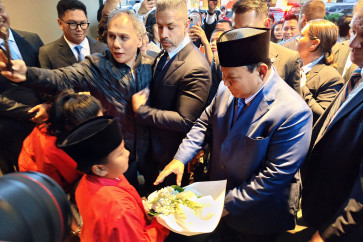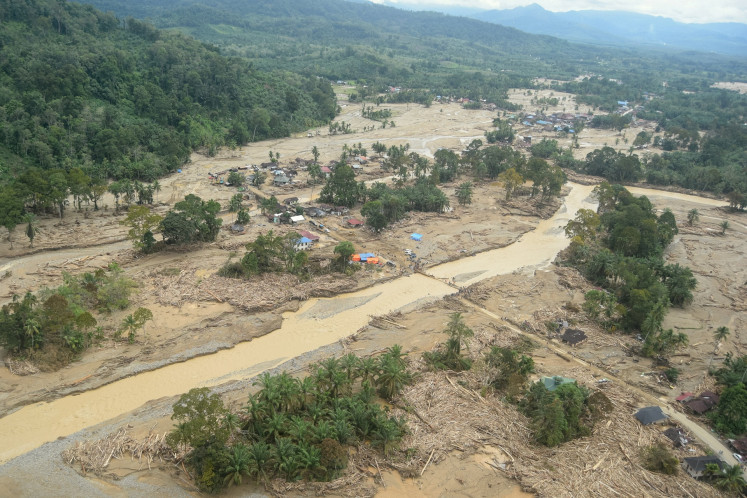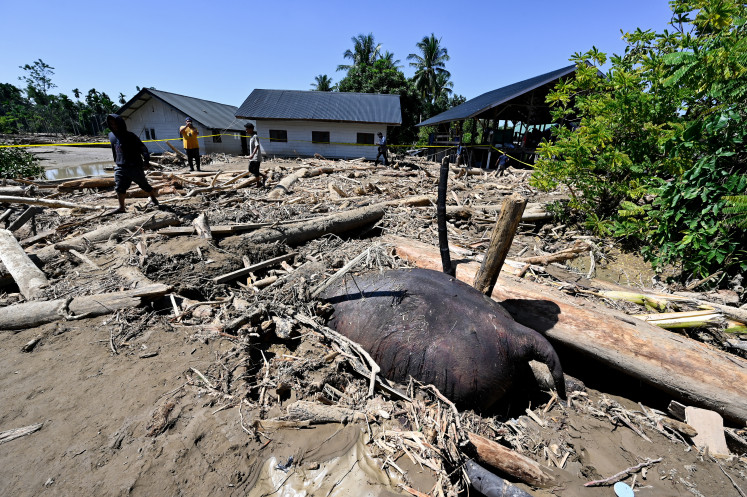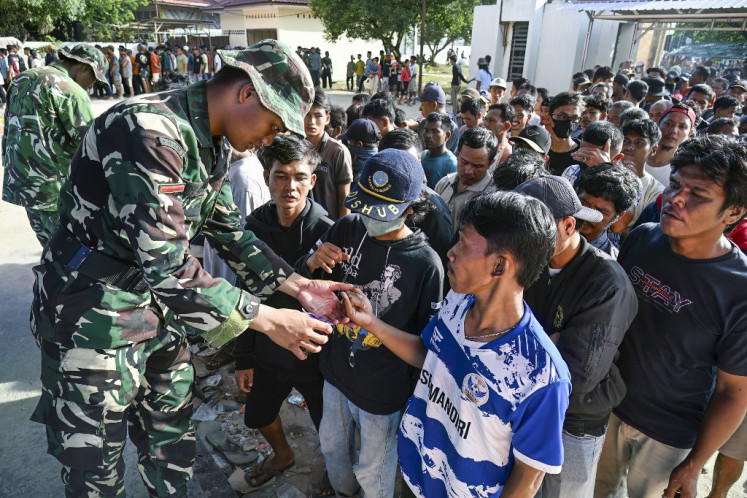Popular Reads
Top Results
Can't find what you're looking for?
View all search resultsPopular Reads
Top Results
Can't find what you're looking for?
View all search resultsUS, China soften stances while RI takes regional leadership
The US and China restrained themselves from engaging in a war of words when they met at the East Asia Summit (EAS) on Saturday, even though they remain at odds over a range of issues, such as currency quarrels, allegations of human rights abuse and disputed territorial claims
Change text size
Gift Premium Articles
to Anyone
T
he US and China restrained themselves from engaging in a war of words when they met at the East Asia Summit (EAS) on Saturday, even though they remain at odds over a range of issues, such as currency quarrels, allegations of human rights abuse and disputed territorial claims.
Equally as significant, Vietnam officially passed the ASEAN chairmanship to Indonesia on Saturday. Indonesia is expected to flex the regional coalition’s collective muscle on a global scale.
The EAS convened the leaders of 10 ASEAN nations and leaders from its six primary dialogue partners — China, Japan, South Korea, Australia, India and New Zealand — and also observers from the US and Russia, each of which is being represented by its foreign minister.
US Secretary of State Hillary Rodham Clinton praised China for taking steps to engage ASEAN. Four ASEAN members are still involved in long-standing rows with China over disputed territories in the South China Sea. Diplomatic options are being discussed in hopes of setting up a formal and binding code of conduct for dealing with the disputes, ultimately in hopes of reaching peaceful and mutually agreeable settlements.
“The US has a national interest in the freedom of navigation and unimpeded lawful commerce. And when disputes arise over maritime territory, we are committed to resolving them peacefully based on customary international law,” Clinton said.
The statement was a mild version of a much more abrasive statement she made on the subject which infuriated China earlier this year. Clinton also seemed to avoid raising the ongoing currency valuation dispute between the US and China in her speech, and avoided other contentious issues involving Myanmar.
Inside the EAS meeting room, China’s Prime Minister Wen Jiabao delivered a restrained speech. He repeated calls for an “ultimate solution” to South China Sea issues to create “peace, cooperation and friendship” in the region.
Indonesian Foreign Minister Marty Natalegawa said that the countries participating in the EAS realized they wanted to create peaceful solutions to problems. “They want to help ASEAN build the region rather than perpetuate problems,” he said.
“Ultimately, the major powers abide by ASEAN’s approach of settling the problems peacefully,” Indonesian Foreign Ministry director general for ASEAN Affairs Djauhari Oratmangun said.
President Susilo Bambang Yudhoyono made it clear that under Indonesia, ASEAN must play a greater role in helping solving global problems — from financial issues to free-trade discussions, and from security to climate change.










